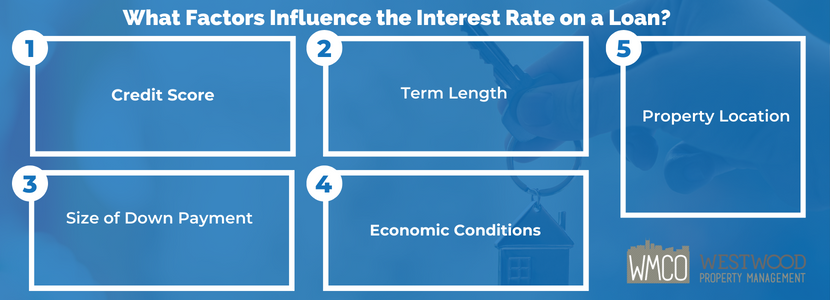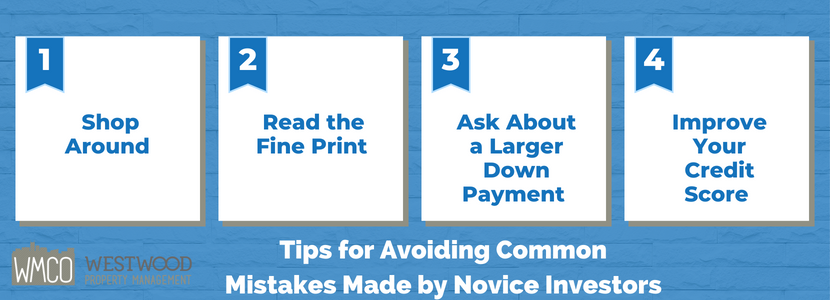Real Estate Investing Tips From a Nashville Real Estate CPA Firm
Are you a relatively new real estate investor looking to increase your returns while minimizing risks? Or, are you thinking about becoming an investor, but have some questions? Finding the right advice and guidance can make all the difference as your portfolio grows. With that in mind, let’s look at some helpful real estate investing tips from a trusted Nashville real estate CPA firm with years of experience helping clients achieve their investment goals. From understanding the pre-approval loan process to what factors influence interest rates, these expert tips will set you on the path to success.
How to Get Pre-approved for a Loan and What Documentation Is Needed
The most common option to finance investment property is with a mortgage loan. The interest you pay on a loan is tax deductible as a business expense, making a mortgage an advantageous way to finance your real estate investment. Obtaining pre-approval for a loan can save you time and energy. It gives the lender key information about your budget and credit, and it allows them to determine if you meet their requirements for a loan amount and interest rate range, all before you have to commit to anything.
The first step is to establish a relationship with a trusted lender who specializes in funding real estate investments so you can begin discussing your unique situation and goals. They will ask for various documents to determine if you are pre-approved for a loan amount as well as at what interest rate.
Getting pre-approved for an investment property typically requires a credit score of at least 700, a down payment of at least 20%, and a carefully thought-out plan for the property. The exact details depend on the lending agency.
For every person whose name is going on the loan, the following documentation is needed:
Employment
A lender needs proof that you are employed. The documents you’ll need to show to prove that you have a steady income include:
- Pay stubs from the last month, at minimum.
- Contact information for your employers from the last two years.
- Business records if you’re self-employed.
Debt-to-Income Ratio
A debt-to-income ratio is a comparison between how much money you make and how much of that money automatically goes toward paying off debts. If your debt-to-income ratio is too high, it will be more difficult to find a lender who will take a risk on your ability to pay the loan back.
If your debt-to-income ratio is low, that means you have much more income than debt, and a lender will be more comfortable trusting that you will be able to pay back the loan for an investment property. Typically, a debt-to-income ratio under 40% is best. You can calculate your debt-to-income ratio now with this handy calculator.
The documents you’ll need to produce to prove that you have an acceptable debt-to-income ratio include:
- Pay stubs.
- Bank statements from the last two or three months (including checking, savings, and money market accounts).
- Proof of other income sources such as a pension, alimony, disability, etc.
- Asset account information from the past two to three months (IRAs, 401ks, stocks, bonds, etc.).
- Loan statements, a copy of your residential mortgage, auto loans, personal loans, student loans, credit cards, etc.
Taxpayer Status
To prove that you’ve been paying taxes as legally required, you’ll need to provide:
- Tax returns (including W2s), usually from the past two years.
Identity
To prove you are who you claim to be, you will need to provide:
- Driver’s license, Social Security card, or another form of ID.
- Proof of current residence, such as a lease agreement, and proof of how long you’ve lived there.
Being pre-approved does not guarantee that you will receive a loan or be able to secure credit when desired. It just provides assurance that you are likely eligible based on the lender’s criteria. Even so, becoming pre-approved can set you up for success during negotiations with sellers by showing them that you are a capable and responsible buyer who is prepared to close.
What Factors Influence the Interest Rate on a Loan?
There are a number of factors that influence the interest rate on a loan.

Credit Score
One factor affecting a loan interest rate is the borrower’s credit score. A higher score usually means you could qualify for a lower interest rate, as lenders see the borrower as more likely to be able to repay the loan.
Term Length
The term length is also a factor, as, historically, shorter loan terms (usually requiring repayment within one to five years) tend to carry a lower interest rate than longer term (in the ten to thirty-year repayment period range) rates because the lender’s risk increases as time passes. The most common term lengths in financing real estate with an investment property are 5 years or 10 years. Borrowers’ income and debt-to-income ratio can play a role as well.
Size of Down Payment
The greater the down payment amount, the lower the interest rate you may be able to negotiate. By placing a larger-than-necessary down payment on a property initially, you gain more trust from the lending agency, which could translate into a lower interest rate. So if you have the capital to invest, it’s a good idea to do so because not only can it decrease your monthly repayment rate, but also save you money on interest in the long run.
Economic Conditions
Furthermore, lenders often take into account current economic conditions when setting their interest rates, meaning that during economic downturns, borrowing may be more expensive as lenders want to minimize their losses if borrowers become unable to pay back loans. Inflation can also raise interest rates, since lenders will want to account for the decrease in the value of their dollars. They’ll raise the interest rate in the hopes of making up for the projected decreased value of their profit due to the effects of inflation.
Property Location
Some states tend to have higher interest rates — think California and New York, where pretty much every aspect of the cost of living is greater. Additionally, whether your prospective property is in an urban or a rural area can also affect the interest rate.
The Importance of Due Diligence in Real Estate Investing
The purpose of due diligence in real estate investing is to ensure a thorough evaluation of the prospective deal. It ensures that no stone is left unturned while scrutinizing all aspects of the potential purchase, including, but not limited to, the property and its location, the financing, the seller, and any compliance obligations.
Doing your due diligence enables you to increase your knowledge and evaluate the financial prospects of your investment choices, thereby reducing uncertainties or removing them altogether. Due diligence is a necessary measure of protecting investments and ensuring successful real estate investing.
Neglecting to do due diligence before financing real estate can lead to regrettable and costly outcomes. It is of utmost importance if you’re considering such investments to conduct your research carefully and thoroughly to know exactly what you’re purchasing and ensure it’s sound.
Before signing anything, get appraisals from multiple sources, look into the property tax history, inspect any existing tenants’ contracts, and inquire about past maintenance/repair costs – all of which are integral for understanding the real value of the investment. Failing to exercise due diligence will not only cut into profits but could also result in legal or financial obligations that should have been uncovered if the proper investigation had been done.
Tips for Avoiding Common Mistakes Made by Novice Investors
The following expert tips are examples of ways to do your due diligence and avoid costly problems that may otherwise arise.

Shop Around
Don’t take the first loan you find. Shop around for the best rates, terms, closing costs, and other fees. Start with the bank that gave you your first mortgage and go from there. If you’re having trouble choosing from all of the lending options for funding real estate investments, talk to your real estate CPA and ask for recommendations.
Read the Fine Print
Yes, it is a pain to read the tiny letters in legal mumbo jumbo at the bottom of the miles of paperwork you have to sign, but neglecting to put yourself through the momentary misery could result in more significant problems down the line. Look for anything about additional fees, such as fees based on the number of investment properties you already own.
Ask About a Larger Down Payment
This may seem counterintuitive at first – why pay more upfront when you could just pay it later? But for every dollar you pay later, you’re paying a lot more in interest. That adds up really fast. The greater the down payment, the less you end up paying overall.
Improve Your Credit Score
A subpar credit score is an excuse for a lending agency to charge a higher interest rate. Check your score before applying and find out what types of loans and interest rates you’re currently eligible for. If the facts are a bit dismal, take steps to improve your credit score before signing anything. Ways to improve your credit score include paying off debts and waiting to apply for new lines of credit until after securing your investment property loan. A real estate CPA could provide you with additional ways to improve your credit score.
Take Advantage of Our Real Estate CPA Services to Help Manage Your Real Estate Investments
As a real estate CPA firm, we want to set the record straight that we are not a lending agency and have no bias when it comes to this topic. We’re here to help you with investment real estate financial planning, from preparing your financial statement for a loan to tax planning and preparation, so you can set your future up for success. Our team of licensed CPAs is ready to offer assistance with all things finance-related to real estate investors in the Greater Nashville area, including Franklin and Brentwood. Contact us today to schedule a consultation and get started on securing your real estate investment future.

